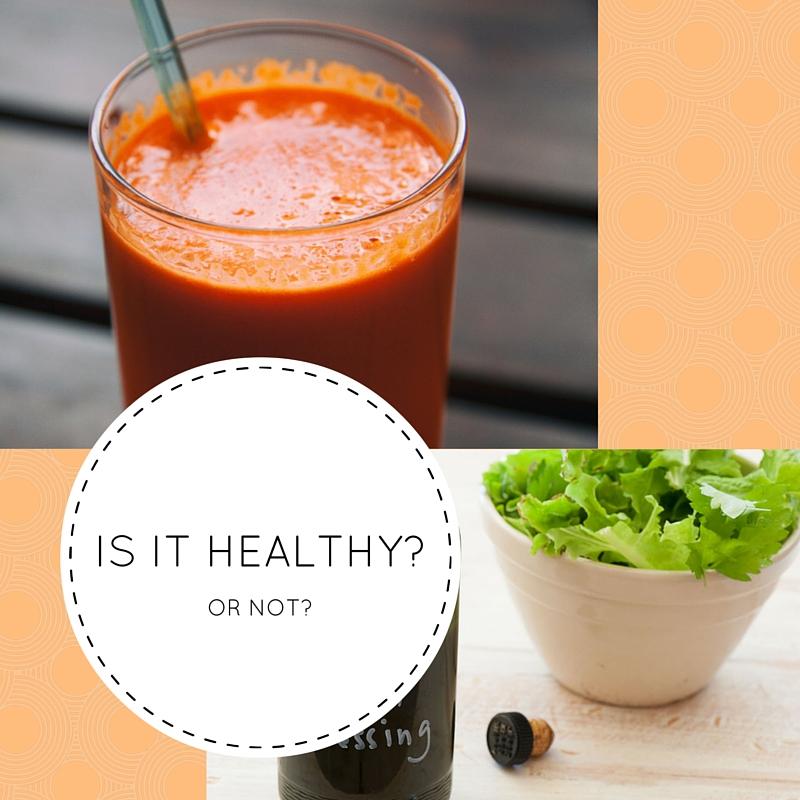Is it Healthy?
February 17, 2016
Foods like reduced fat snacks, fruit juice, salads with dressing, all sound healthy to the average person. However, “healthy” foods that you may eat may not be as healthy as you think. Many food products that are loaded with sugar and fat are marketed as healthy, when in reality they are very bad for your health.
Here are a few products that are misconceived as healthy:
Fruit Juice
Fruit juice is a common drink that consumers assume as healthy, when in reality they are generally filled with sugar and lack the fiber and nutrients from eating fresh whole fruit. Fruit juice is commonly seen as a healthy alternative to soda and other sugary drinks. However, usually fruit juices have added sugars and a wide variety of chemicals to bring out the flavor. Sometimes there is no actual fruit present in the juice. Even if the juice you are drinking is 100% fruit, it is not exactly healthy. Fruit juice is essentially the sugar of fruits and none of the nutrition. Fruit drinks also lack the fiber that whole fresh fruits provide. A cup of apple juice only has 6% of the actual fiber from a whole apple. For example, orange juices may be stored for months before being packaged and shipped to stores, and during that time lose majority of the flavor and nutrients. Companies end up having to add “flavor packs” to reintroduce the orange flavor. In the end, it’s always better to eat the whole fresh fruit instead of the juice.
Salad Dressing
Salads are commonly seen as a healthy food–and they are. However, they’re healthy until you drench it with unhealthy dressings. Most salad dressings have large amounts of sugar, fat, sodium, and chemicals. While it’s great to eat a salad, the health benefits can be nullified when drenched in dressing. Make sure to check the ingredient list and nutritional facts of a dressing to see if you are making your salad unhealthy.
Sports Drinks
Most athletes consume Sports drinks such as Gatorade or Powerade on a regular basis, but are they really necessary? Sports drinks are advertised as a way replace electrolytes, sodium, and minerals lost from sweat along with replacing sugar used from muscles. A study was conducted in which a group of athletes ran an average workout for 45 minutes, and had their blood tested before and after the workout. The results showed that electrolyte and glucose levels were unchanged from before and after. The only major difference was that the runners were dehydrated. Most average sized sports drinks have over 40g of sugar, and sugar is directly related with weight gain and other health problems. Sports drinks may come in handy whenever performing a highly intensive workouts, but not for the average workout.
In the end, you should always make sure you know what you’re eating. Advertisements are cleverly created to make you purchase their product, regardless if their claims are entirely true. Before buying something from the store, you should check the nutritional facts and ingredient list to see if what you’re buying is truly good for you







